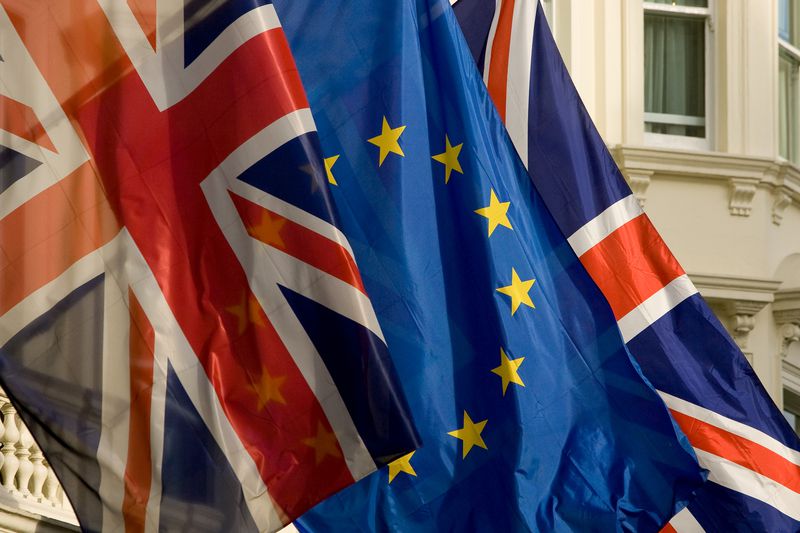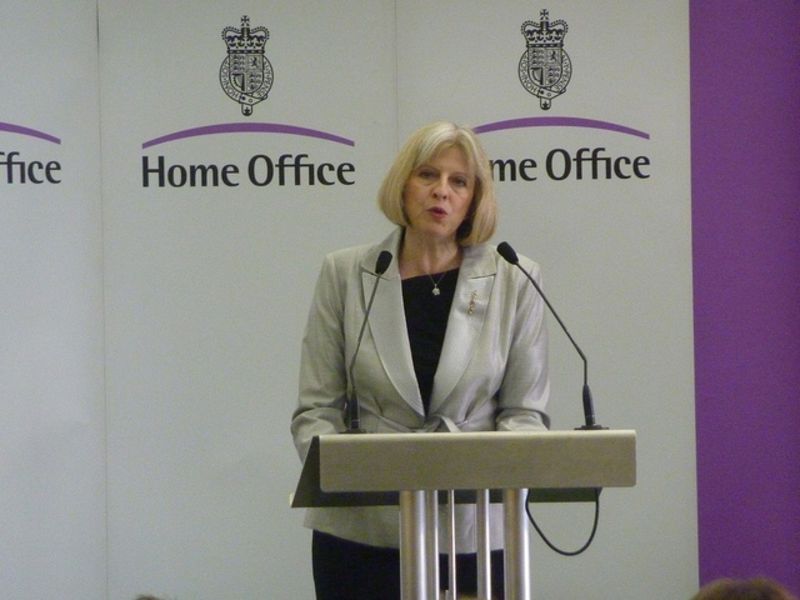UK: Should I Stay Or Should I Go!?
Zhaneta Kuyumdzhieva, September 19, 2013
 As the tradition goes, the partnership between the EU and UK is exceptional, literally - from one exception to another, from one opt-out to another. In the past year, the trend of opt-outs is returning in full blossom in the relations between Brussels and London as the culmination is expected in 2015 when London will have to decide in the end will it stay in the EU or will it go. Naturally, if there is a referendum and, of course, if by then the connection with the EU has not become so loose that it would not be worth discussing the issue. And a step in the direction of further loosening from Brussels's grip has been made this summer as if to prove the determination stated by Prime Minister David Cameron in the beginning of the year in his famous European speech. On July 9th Great Britain decided to make another exception, but this time for 133 measures related to home affairs and justice that also affect the quite modern these days, thanks to Croatia, European Arrest Warrant (EAW).
As the tradition goes, the partnership between the EU and UK is exceptional, literally - from one exception to another, from one opt-out to another. In the past year, the trend of opt-outs is returning in full blossom in the relations between Brussels and London as the culmination is expected in 2015 when London will have to decide in the end will it stay in the EU or will it go. Naturally, if there is a referendum and, of course, if by then the connection with the EU has not become so loose that it would not be worth discussing the issue. And a step in the direction of further loosening from Brussels's grip has been made this summer as if to prove the determination stated by Prime Minister David Cameron in the beginning of the year in his famous European speech. On July 9th Great Britain decided to make another exception, but this time for 133 measures related to home affairs and justice that also affect the quite modern these days, thanks to Croatia, European Arrest Warrant (EAW).
Those are measures agreed before the entering into force of the Lisbon Treaty and are spread in the following categories:
- Measures for mutual recognition of national decisions and decisions like the European Arrest Warrant;
- Measures that harmonise the definitions of certain crimes and minimal sanctions;
- Measures linked to investigative procedures;
- Measures supporting trans-border cooperation, in particular of police and law enforcement services, including the exchange of information and investigations of crimes;
- Decisions establishing European agencies like Europol, Eurojust and the European Police College;
- Agreements with third parties for data exchange, legal assistance and extradition;
- A number of measures on which Schengen is based.
The UK had two options: either to accept the package of measures by May 31st, 2013, and enforce them as of January 1st next year or the country to use its right of non-participation and renegotiate joining these measures at a later stage (or at least those provisions the country is interested in). In case it did not use its opt-out right, these measures in the area of security would have fallen under the jurisdiction of the European Court of Justice and the European Commission. On October 15th 2012 Home Secretary Theresa May announced that the government were considering whether to apprehend or use its opt-out option and work for rejoining those measures that fall within the country's national interest.
On July 9th the position of the government was formally announced and after all it was "NO" to the EU measures. During a round of the debate in the temporary committee on organised crime, corruption and money laundering in the European Parliament on July 10th on Salvatore Lacolino's report, which recommends legislative measures to fight crime, Mr Bill Newton Dunn (ALDE, UK) called the decision "stupid" and expressed fears about Britain's security which so generously uses its right of opt-out.
As a matter of fact, the "deal" is not exactly this. "We believe the UK should opt out of the measures in question for reasons of principle, policy, and pragmatism. And we should only seek to rejoin those measures that help us co-operate with our European neighbours to combat cross-border crime and keep our country safe", Ms May said. This, so called "smaller", package consists of 35 measures out of the 133 in the big package.
And because the number is not sufficiently convincing as a statement that the country is "on board" for mutual actions to defend the European citizens and their rights, Ms May defended the decision of her government with the following arguments:
"In policy terms, the UK has – and will continue to have – the ability to choose whether it should opt in to any new proposal in the field of justice and home affairs. It is therefore right that we take the opportunity to consider whether we wish to retain the measures that were joined by the previous government, and to decide on a case-by-case basis if we are willing to allow the European Court of Justice to exercise jurisdiction over them in future. And finally, the Government is being pragmatic. I have said before that we will not leave the UK open to the threat of infraction – and fines which run into many millions of pounds – by remaining bound by measures we simply cannot implement in time. That would be senseless".
With all the conditions to improve the quality and efficiency of the counteraction of crime such a decision somewhat waters enthusiasm down. From the announcement of the Home Office it becomes clear that the country will not participate in the establishment of a European prosecution and will agree with the European Arrest Warrant only when additional safeguards are introduced that matter for the rights of the British citizens. What the EAW is in essence at the moment is a request by a judicial body of a member state an individual to be arrested in another member state and to be transferred to the former for prosecution or for enforcing a prison sentence or a measure that requires an arrest. The mechanism suggests a mutual recognition of court rulings as well as the establishment of direct contacts between the judicial bodies.
The member states and national courts should adhere to the provisions of the European Convention on Human Rights. A person arrested with an EAW has the right to ask for a lawyer and if necessary an interpreter, according to the legislation of the country where he/she is arrested.
The proposal of the British authorities from July is additional safeguards to be included related to the extradition warrants, namely:
- Amending the Anti-Social Behaviour, Crime and Policing Bill to ensure an arrest warrant can be refused for minor crimes;
- Using the European Investigation Order instead of the EAW so that police forces and prosecutors share evidence without requiring the extradition of a suspect at the investigative stage;
- Addressing lengthy and avoidable pre-trial detention by amending the UK Extradition Act so that a person in the UK can only be extradited under the EAW when the requesting State has made a decision to charge – and also to try – that individual, unless that person’s presence is required in that jurisdiction for those decisions to be made.
Curious are the main criticisms against the EAW which can be found in a document of the House of Lords from April this year, entitled European Policy and Measures in the Area of Justice: Britain's Decisions for Non-participation 2014, prepared for debate in Parliament. In it the following flaws of the  EAW are outlined which probably Ms May spoke about in her speech several months later, accusing the former government of not recognising and addressing them in 8 years:
EAW are outlined which probably Ms May spoke about in her speech several months later, accusing the former government of not recognising and addressing them in 8 years:
- Disproportionate use of the warrant for trivial accusations and acts which, according to British law, are not considered crimes;
- The long period of pre-trial arrest of individuals abroad.
From the document of the House of Lords it is visible that, according to the UK Independence Party, the benefits from the EAW are "delusional" and it "does not accelerate nor facilitate or reduce the costs of extradition". Either way, this analysis was rejected by the Police Officers Association who said that this measure for arrest and extradition makes the system much cheaper and ensures the rights of victims because it puts many more criminals to trial. Only in 2009 the EAW was used to extradite from the UK 57 suspects of sexual crimes with minors, 86 of rape and 105 of murder. In the same period, 63 suspects of sexual crimes, 27 of rape and 44 of murder were returned to the UK to face trial.
So far, the data are in favour of the EAW. Practically, criticisms are mainly aimed at procedural, operational problems (bad conditions in prisons, long periods of awaiting a trial, etc), which, however, will be valid in any other system for extradition.
In the document from April 2013 it is underlined that the European Arrest Warrant is the most important justice measure and relying on alternative agreements for extradition would most probably lead to the same criticisms and even the period of extradition can be extended and impeded which will undermine the efforts to ensure safety. For this reason, the government of Britain will work for a consequent rejoining. As question "Who needs this?" sounded the comment of Mr Newton Dunn who added that the months of negotiations of London with the EU on rejoining the 35 measures will make the country a target for criminals.
Let us hope that the pragmatic approach will not bring too many practical problems.
 Federica Mogherini | © Council of the EU
Federica Mogherini | © Council of the EU | © Council of the EU
| © Council of the EU Luis De Guindos | © Council of the EU
Luis De Guindos | © Council of the EU